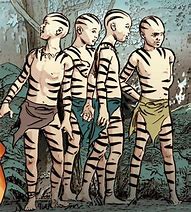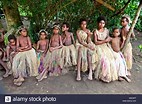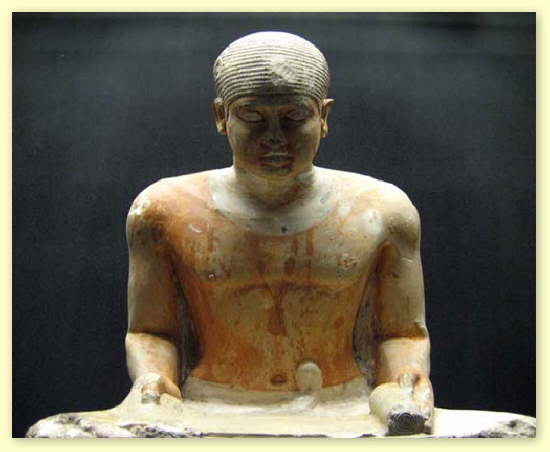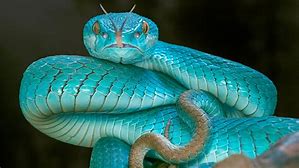The Children of the Sun-2







The Children of the Sun-2
Africa
A little more than a century ago a Frenchman by the name of Volney wrote an eloquent book entitled, "Ruins of Empires," it so delighted the scholars of the day that it was translated into English and a special edition sent across the Atlantic, to be known as the American sdition. The translator, out of respect to the feelings of Americans respecting the black races, let out the following quotation: "There are people, now forgotten, discovered, while others were yet barbarians, the elements of the arts and sciences. A race of men ejected from society for their sable skin and frizzled hair founded, on the study of the laws of nature, those civil aand religious systems which still govern the universe."
The excavation carried on under the supervision of the Pennsylvania University are located in the regions of lower Nubia and in the neighborhood of the ancient seat of the great Empire of Ethopia. Tradition has it that Ethopia is the mother of the nations and that she nourished and reared not only Egypt, but many of the nations of Asia and even gave to Greece her Gods, laws and civilization.
In spite of the fact that Ridpath (whose publishers admit that he is a popular historian and not an accurate one)classifies the Ethhiopians as white, it seems that their very name is Greek for "the dusky faced one," and the phrase, " to wash the Ethopians white," was a proverbial expression applied by the ancients to a hopeless task. The Hebraical verse, "Can the Ethopians change his skin or the leopard his spots?" is yet another verification of the fact that the Ethopians of six thousand years ago were the same as the Ethopians of today. Greece seems to have had a respect for the Ethopians that amounted to almost reverence. To them Ethopia was the home of the divine people, and from Ethopia came their great god Zeus. Of them Homer sings:
"The sire of gods and all the ethereal train,
On the warm limits of the farthest main,
Now mix with mortals, nor distain to grace
The feasts of Ethopia's blameless race."--(Illiad.)
It has been written that "when the Greeks knew scarcely of Italy or Sicily by name, the virtues, the civilization and the mythology of the Ethopian supplied their poets a subject of lofty description." Diodorus tells us that they were the inventors of pomps, sacrifices, solemn assemblies and of all honors paid the gods. Herodotus accounted them as a wonderful race and the Hebrews paid them lofty tribute in their scriptures. A very close relationship existed between the Egyptians and the Ethopians. It is nowhere asserted that they spoke the same language, but this seems implied and very probable in view of the fact that their nieroglyphics are the same.
In religion their relationship was even more pronounced. Both had the same system of worship, the same sacredotal orders, the same pomps and processions. The images of the gods were at certain times conveyed up the Nile from their Egyptian temples to others in Ethopia and after the festival were brought back again into Egypt. Many times in the history of Egypt the country swayed under Ethopian dynasties.
Reference:The Children of the Sun:George Wells Parker .....Read More
The Yakel Community-Tribal Diets






It is a world away from the glitz and glamour of Hollywood, but nestled between a volcano and the tropical rainforest on Vanuatu's island of Tanna, lives the cast of the internationally acclaimed film of the same name.
Africa - A Brief History - 2







Africa - A Brief History - 2
Whites who invaded Africa were killed or captured. They became prisoners of wars, were trained to work and eventually participated in the African society. Let there be no doubt that these whites contributed nothing to African culture except diseases, land rape and chattel slavery. In fact, Greek society was founded upon slavery of whites and these slaves could not own property. Nonetheless, black Africans kept white relatives (sons) of Asia and Mediterranean rulers. These hostages were trained in African sciences and medicines. The white hostages and prisoners of war population greatly increased.
The white invasions coupled with the white slaves in Africa, in addition to the internal African strife (caused by social injustice and feudalistic governments) caused Africa to weaken. With every increase in African deterioration, the Greeks became more powerful and eventually undermined and upsurped Egyptian culture,medical knowledge and religion. The greatest white historians Herodotus, Pliny, and Diodorus wrote that the early black civilizations were the most advanced of all civilizations. Further, these historians also wrote that Europeans had borrowed (without permission = stole) black Africa's sciences and religion. No matter how whites refute this, these historians were honest and visited Africa to confirm their findings. Written and pictorial history has confirmed time after time that everything the whites know about hygenic medicine is unquestionably African.
Greek historians helped to confirm Africa's glory and Egyptian dynasties.Egyptian dynastic eras lasted over 10,000 years. Fuerthermore, this dynamic era saw Egypt dominate medicine and the herb/drug trade. Much of the era's medicinal knowledge was put in the control of the god-kings and placed in a mystery system. These mystery healing systems were taught to priests (so-called monks) in monasteries or temples.
The succession of controllers of Egypt learned from the monks and transmitted the herb and drug knowledge to their native European lands.These monks/herbalists/priests/agriculturists carried the medical knowledge intact to Europe and with cultural modifications adjusted it to European culture. The successive colonizers of Egypt were the white Assyrians Saites, Persians, Greeks, and the Romans. The Greeks (invaded Africa 332 B.C. and Romans (invaded Africa 201 B.C.) not only learned the African medicine system but also called it a discovery of European culture, while in actuality they copied the medical science and the monastic life.(The Destruction of Black Civilization by C.Williams, The African Origin of Civilization by C.Diop).
Egypt developing monastic living. This type of living required the acquisition of knowledge in medicinal herbs and spirituality. The Greeks studied on the upper Nile islands under the religious order of Tabennae founded by Pachomius. These religious herbalists sold herbs, honey and foods at Alexandria. Egyptians lived on these islands and instructed many European religious monks on agriculture and industry.
Egypt developing monastic living. This type of living required the acquisition of knowledge in medicinal herbs and spirituality. The Greeks studied on the upper Nile islands under the religious order of Tabennae founded by Pachomius. These religious herbalists sold herbs, honey and foods at Alexandria. Egyptians lived on these islands and instructed many European religious monks on agriculture and industry. This is vaguely mentioned in The Golden Age of Herbs adpoted and followed by the Romans. They transported this system to Europe and built a benedictine monastery at Monte Cassino in Italy.
Herbology and treatment methods came from African empires such as Mali, Songhai, and Kush. The Kush kingdom was dominated mostly by light skinned caucasians and their diet was nutritionally lacking. However, they began to invade the areas southwards which had plentiful crops and medicine. This area was inhabited by black Africans and was rich in iron ore and fuel supplies. Areas around the fifth and sixth cataracts of the Nile had vast iron industries. Assyrians were one of the invaders that developed the techn ology of iron work and a socialized form of medicine similar to the babylonians which dated from 2250 B.C Moreover, this was around the same period that the Egyptians had traded plants, herbs and dry goods with Ethopia in 2275 B.C.
Black Egyptian medicinal knowledge extended across the Sudanic belt of Africa. subsequently, the Kush empire began to decline as African empires entering the trade market dominated specific goods such as the sandalwood herb, khat, Hawthorn berry, Cotton Tropica, Aloe Vera, and figs. The Kush decline occured around the First century A.D. Axum , the capital of Ethopia, was one of the competitors that seized control of part of the Kush trade market.
The desert African empires controlled the aloe vera market.The north Africans controlled such herbs as hawthorn berry, and the forest region controlled coffee, carob, centuary, and eucalyptus. Ethopia controlled the herb khat, which is a brain stimulant. Axum was typical oif the splendid African cities; it had stone palaces, OPbelisks, gardens of herbs, indoor water and temples. Meroe was invaded by the Kush; and thus caused Africans to migrate to Lake Chad and beyond. This subsequent migration of people and medicinal knowledge helped to weaken Africa.
The internal wars and dispersion of peoples, food science and herb knowledge helped to spread the glory of Africa abroad to Europe, and the merchantile trade. Industry helped to broadcast the values of Africa. Egypt was conquered by Alexander the Great (356-323 B.C.). Then ptolemy, a general in Alexandder's army, ruled Egypt and established the city Alexandria. This gradual decline of Black Egypt is exposed in African Glory by J.C. deGraft-Johnson. Other black races contributed to the decline of Africa, the source of medicinal herb and drug knowledge.
Reference:African Holistic Health: liaila O. Afrika
The Serpent and the Rainbow




The Serpent and the Rainbow
A Harvard Scientist's astonishing journey into the Secret Societies of Hatian Voodoo, Zombis, and Magic.
The orthography of the name of the Hatian traditional religion has been the source of some academic debate. The word Voodoo comes from the Fon language of Dahomey (now Benin) and Togo. It means simply "god" or "spirit." Unfortunately, as a result of the sensational and inaccurate interpretations in the media, Hollywood in particular, the word voodoo has come to represent a fantasy of black magic and sorcery.
Anthropologists have attempted to both highlight and to avoid this stereotype by using a number of terms including vodu,vodun, voudoun, and vodun. I have followed their lead because I feel, as I hope this book will show, that the rich religion of the Hatian traditional society deserves to be recognized, and what we have come to know as "voodoo" bears little resemblance to it. I use the term Vodoun because it seems to me to be phonetically the most accurate.
However, it is important to note at the outset that the Hatian peasants themselves do not call their religion "vodoun". Theirs is a closed system of belief,and in a world of few alternatives one either "serves the loa"-the spirits-or one does not. Vodoun, from their point of view refers to a specific event, a dance ritual during which the spirits arrive to mount and possess the believer. For the sake of clarity, I refer throughout these pages to the "vodoun society." This is a concept of convenience, and it also reflects the view of outsiders looking in, not that of a believer surrounded by his /her spirit realm.
Likewise, the spelling of zombi is a matter of some disagreement.Westerner's prefer zombie, the more familiar form, to zombi. My Oxford dictionary doesn't have the term, which reflects the American fasination with Haiti since the Occupation. (in 2019 president Donald Trump declares Haiti to be A "Shit Hole", on an official visit via the media, a profound insult to the natives and the art of political diplomacy). A beautiful tale which depicts the confusion of Western philosophy and psychology.
The sources in the literature are mixed. Seabrook (1929) spelled it zombie, as did Deren (1953). Metraux (1972), Huxley (1966), and Leyburn (1941), on the other hand, use Zombi. Metraux is perhaps the recognized authority on the religion, but to my mind Deren had more intimate contact with the people and is an important source as well- although this has little to do with the spelling of the term.
Reference: The Serpent and the Rainbow:Wade Davis
Articles - Most Read
- Home
- LIVER DIS-EASE AND GALL BLADDER DIS-EASE
- Contacts
- African Wholistics - Medicines, Machines and Ignorance
- African Holistics - Seduced by Ignorance and Research
- African Wholistics -The Overlooked Revolution
- The Children of the Sun-3
- Kidney Stones-African Holistic Health
- PART ONE: DIS-EASE TREATMENT AND HEALTH-3
- 'Tortured' and shackled pupils freed from Nigerian Islamic school
- The Serpent and the RainBow-The Jaguar - 2
- PART ONE: DIS-EASE TREATMENT AND HEALTH-2
- PART ONE: DIS-EASE TREATMENT AND HEALTH-4
- PART ONE: DIS-EASE TREATMENT AND HEALTH-5
- King Leopold's Ghost - Introduction
- African Wholistics - Medicine
- Menopause
- PART ONE: DIS-EASE TREATMENT AND HEALTH-6
- The Mystery System
- The Black Pharaohs Nubian Pharaohs of Ancient Egypt
Who's On Line?
We have 84 guests and no members online
Ad Agency Remote
Articles - Latest
- Burdock – 7 Amazing Benefits & Nutrition Facts
- Ask A Nutrition Professional: Can Eating Raw Zucchini Cause Pain?
- Five things I wish I knew before starting hormones as a trans person
- ‘Hidden’ bacteria could explain chronic urinary tract infections
- Chinese scientists create mutant Ebola virus in lab
- ‘Magic mushrooms’ could be effective antidepressant after one dose, study suggests
- Does Valerian Root Cause Weight Gain? A Review By Nutrition Professionals
- No Salt Alternatives
- The world’s deadliest infectious disease is on the rise in the UK
- The Best Substitutes for Allspice
- What is gender dysphoria and how can you support your trans friends?
- Pioneering cooling boots and mittens to help stop chemo side-effect
- Ask A Nutrition Professional: How Do I Prepare Yellow Squash?
- The anti-ageing benefits of eating protein
- New analysis of cancer cells identifies 370 targets for smarter, personalized treatments
- Pattypan Squash: Nutrition Professionals Weigh In on the Right Amount.
- Ways to manage chronic pain
- The more fertile you are, the sooner you may die — study Story by Fred Schwaller
- You stand like an overcooked prawn!’ Why bad posture is the key to back pain – and 10 ways to improve yours
